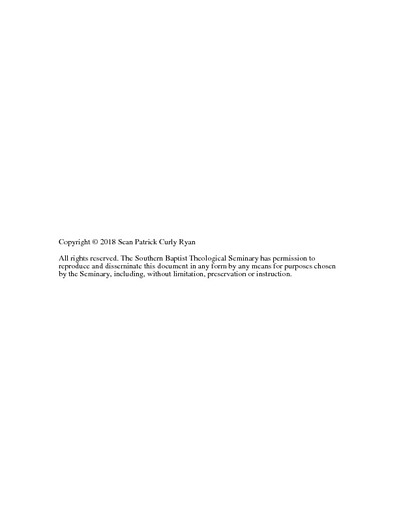| dc.contributor.advisor | Cabal, Theodore J. | |
| dc.contributor.author | Ryan, Sean P. | |
| dc.date.accessioned | 2019-06-05T19:08:57Z | |
| dc.date.available | 2019-06-05T19:08:57Z | |
| dc.date.issued | 2018-10-27 | |
| dc.identifier.uri | http://hdl.handle.net/10392/5850 | |
| dc.description.abstract | The contemporary Christian apologetics movement appears to be thriving, but two recent books serve as particularly lucid representations of opposing mindsets concerning apologetics practice. The End of Apologetics by Myron Bradley Penner and Fool’s Talk by Os Guinness both received Christianity Today Book Awards in the Apologetics-Evangelism category. Penner argues that the approaches of apologists such as William Lane Craig, J. P. Moreland, and Douglas Groothuis are hopelessly hindered by their purported commitment to modern rationalism. To effectively navigate postmodern circumstances, he proposes an overhaul of the apologetics enterprise and its replacement with an edification-based approach. Guinness shares many of Penner’s concerns but contends that Christians must revive the art of persuasion as the best corrective to the deficiencies of contemporary apologetics.
This thesis compares these two works to determine which of the authors’ models faithfully represents biblical prophetic witness. Chapter 1 identifies trends within contemporary apologetics that indicate the value comparing Guinness’ and Penner’s perspectives. Chapter 2 provides synopses of their works to orient the reader to their main arguments. Chapter 3 is dedicated to foundational issues that undergird the two author’s views—including their respective epistemologies and their treatment of historical sources such as Augustine, Chesterton, and Kierkegaard. Chapters 4 and 5 demonstrate that Penner's edification model of apologetics departs from the biblical principles and historical understandings of Christian witness. Conversely, Os Guinness' persuasion-based approach maintains fidelity with Scripture, promotes continuity with church history, and effectively addresses Penner's most prominent concerns. Finally, the thesis recurrently highlights positive trends within the contemporary apologetics movement which indicate its strong propensity to adapt to cultural changes without sacrificing time-tested biblical principles. | en_US |
| dc.subject.lcsh | Penner, Myron B., 1968- End of apologetics | en-us |
| dc.subject.lcsh | Guinness, Os. Fool's talk | en-us |
| dc.subject.lcsh | Apologetics--Methodology | en-us |
| dc.title | Edification or Persuasion? A Comparative Analysis of the Apologetics Philosophies of Myron B. Penner and Os Guinness | en_US |
| dc.type | Electronic project | en_US |
| dc.type | Text | en_US |
| dc.contributor.committee | Harrod, Joseph C. | |
| dc.type.qualificationname | D.Ed.Min. | en_US |
| dc.publisher.department | School of Missions and Evangelism | |

